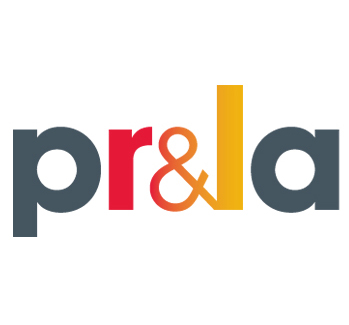State Items
BUDGET UPDATE
As of the writing of this article, the state still does not have a finalized state budget and chances are when you are reading this, it still won’t be finalized. Fall session began in mid-September and not much of anything will be done until unfinished budget documents are completed.
HOW WE GOT HERE
The Senate returned to session on July 26, to quickly, but barely, pass the plan previously agreed to by four of the five negotiating parties (Senate Rs and Ds, Governor and House Ds). A variety of funding bills, including the tax code bill that barely passed by a vote of 26-24, are currently awaiting consideration in the House. House leadership and members continue to review the plan and members will not return until their regularly scheduled session day on September 11. In the meantime, the Governor has placed $183 million in budgetary reserves in case those funds are needed because of budget shortfalls.
AND NOW FOR OUR STATE CONTROLLED MONOPOLY
The PLCB has sent a letter to all suppliers who did not lower the acquisition cost of their products after Act 39 or did not lower them “enough” that the PLCB would be increasing the shelf price of their products by about $1 per bottle. Those price increases took effect on August 28 for 422 items.
WHAT DID THE SENATE PASS TO FILL THE BUDGET DEFICIT?
The Senate tax code bill includes a variety of tax increases to balance the budget, some of the key items are as follows:
Expand sales tax to online marketplace retailers. This is only an expansion of sales tax, so does not impact online marketplace retailers who would be assessed occupancy tax.
Impose a gross receipts tax of 5.7 percent on the retail sale of natural gas—this tax would be assessed on the end consumer’s bill.
Increase the gross receipts tax on telecommunications, transportation, and electric companies—this increase would be assessed on the end consumer’s bill.
Legalize the sale of fireworks to the consumers, and assess a 6 percent sales tax and additional 12 percent tax on.
Create a severance tax on Marcellus shale.
As noted above, the House has been notably resistant to tax increases, so no one knows if they have the votes to concur with the Senate plan.
TO ADD TO THE FUN
The House Democrats have filed a discharge resolution on HB 1520 (Kim—D, Dauphin). If they receive enough votes, the bill would be “discharged” out of the House Labor & Industry Committee without a vote. HB 1520 would increase the minimum wage to $15/hour and eliminate the tipped wage completely. The Democrats could call up the vote when the House returns to session in September. PRLA is working with our coalition partners and House leaders to explore our options if this threat becomes imminent. Please stay tuned for a grassroots alert if we feel we need to aggressively engage on this issue.
Federal Items
TIP POOLING WIN – BUT WAIT – NOT SO FAST
The U.S. Department of Labor has announced that it will rescind an Obama-administration ruling that stated tip pooling could not occur between front and back of the house employees. To clarify, the ability to tip pool amongst all employees only applies if the business does NOT take a tip credit and all employees’ base pay is minimum wage or higher. The official proposal repealing the rule was to be released in August.
ONLINE TRAVEL AGENCY INDUSTRY REPORT
A Harvard Business School professor released a report that looks at the impact online travel agencies (OTA) have had on the hotel industry. It contains the following key findings:
Almost all OTAs are owned by Expedia and Priceline, all other OTAs control no more than 1 percent of the market.
With limited competition, each OTA can anticipate the others’ pricing, letting the OTAs increase their fees to hotels with greater confidence that the others will match.
When hotels have offered lower prices with loyalty programs on their own sites, OTAs have demoted their listings by altering where they appear in search results, changing the color scheme to deemphasize or even removing photos of the hotels.
The hotel industry remains strikingly decentralized, with no single firm controlling more than 20 percent of capacity. Smaller hotels, especially, lack the market power to forcefully oppose OTA fees.
MENU LABELING
The Food and Drug administration has announced their intention to provide clear menu-labeling guidance by the end of this year. In the meantime, federal preemption continues to stand and states and cities are not allowed to enforce previously passed menu labeling laws.
NLRB
The U.S. Senate confirmed Marvin Kaplan to the National Labor Relations Board (NLRB) by a vote of 50-48. A vote for William Emanuel, the other nominee, has not yet been scheduled. Once Emanuel is confirmed, the NLRB will have a Republican majority.
Local Issues
PHILADELPHIA BEVERAGE TAX
The Philadelphia beverage tax continue to fall short of projections as studies are released that confirm exactly what the industry has been saying from the beginning—people will buy fewer beverages in the City, purchase more beverages and other items outside of the City, and the cons will outweigh the pros of this exorbitantly large tax.
PITTSBURGH PAID LEAVE
PRLA filed a petition urging the Supreme Court to not take up the appeal filed by the City of Pittsburgh as it pertains to mandated paid leave in the City. We argued that previous rulings on this type of issue by the Supreme Court have been upheld by the lower courts and therefore there is no reason to hear the case. There is no set timeline for when the Supreme Court will decide. As always, unless the Supreme Court rules otherwise, mandated paid leave in Pittsburgh remains illegal.
HARRISBURG – AIRBNB
The City of Harrisburg is beginning the process of figuring out how to tackle and regulate short-term rentals in the City. The Pennsylvania Association of Bed & Breakfast Inns and PRLA continue to work together to ensure a level playing field for all entities that provide overnight accommodations. •











